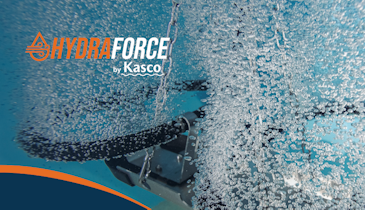Once you have captured fine grit through a separation system and then removed the remaining attached organics, the last step is to dewater it. This is another stage where fine grit particles can be lost. Many types of dewatering systems introduce turbulence, which can resuspend the smaller grit particles and allow it to pass through the dewatering process to cause problems for your plant downstream. Inferior grit dewatering can significantly degrade the overall performance of even the best grit separation and washing systems.
Hydro International’s Grit Snail and SpiraSnail grit dewatering technologies have been specifically designed to address the flaws inherent to conventional grit dewatering.
Grit Snail - Quiescent Dewatering Escalator
The Grit Snail uses a slowly moving belt to gently carry grit out of the clarifier and dry it. This eliminates the turbulence common to other types of grit dewatering which allows it to retain even the finest grit particles. The Grit Snail is a high capacity system designed to handle even the highest grit loading conditions.
SpiraSnail - Optimized Screw Classifier
Dewatering screw classifiers have been around for many years but they share a number of design flaws that make them maintenance nightmares. The SpiraSnail was designed specifically to address these common maintenance problems. The result is a system that experiences significantly less downtime and is much easier to replace wear parts and maintain peak performance.
Watch this video to see how these two technologies work and learn how they can reduce the volume and weight of materials that you send to landfill and reduce your operating costs.
Visit the Hydro International Storefront





